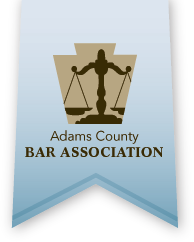The Truth About Probate In Pennsylvania
Reprinted with permission from the Probate and Trust Law Section of The Allegheny County Bar Association
How does the probate process begin?
When a person dies owning assets in his or her name alone, an estate must be started by a personal representative to handle the decedent’s assets and take care of settling the decedent’s affairs. This is called the probate or estate administration process. The personal representative is called an Executor if appointed in the decedent’s Will and is otherwise called an Administrator. The personal representative can be an individual or corporation (such as a bank or trust company).
What happens after an estate is started?
The job of the personal representative is to wind up the decedent’s affairs by notifying beneficiaries, gathering assets, paying debts and taxes, accounting for all estate transactions and properly distributing the estate. The personal representative is the only one legally authorized to deal with the assets of the estate and handle matters of estate administration.
Why is there a probate process?
Reasons for the probate process include prevention of fraud and protection of creditors and rightful beneficiaries of estates. Beneficiaries are entitled to notice of the estate administration and an accounting of all estate transactions. They also have access to all documents filed by the estate. The probate process in Pennsylvania is an efficient way to protect beneficiaries and creditors and to assure proper distribution of estate assets.
What are the costs of probate?
In Pennsylvania, the costs of probate include filing fees for opening the estate, advertising the estate, filing an inventory of estate assets and other papers to complete the administration process. In addition, legal fees are paid to the attorney handling the estate work, which may include preparation of various death and income tax returns. The personal representative may charge a commission. Obtaining appropriate legal advice about the administration of the estate can help keep down costs as well as taxes. Legal counsel is also advisable in dealing with assets which pass outside of probate, such as when a living trust is involved.
Does probate take a long time?
In Pennsylvania, probate need not and normally does not take long in comparison with other states. Personal representatives are accorded broad powers to accomplish the administration of estates expeditiously. They are empowered to handle most details (liquidating assets, paying debts and expenses, etc.) without seeking court approval for each and every transaction. Personal representatives are required to file only an inventory of estate assets and periodic short status reports stating whether the estate administration has been completed. Accounting of estate transactions to beneficiaries and heirs may be accomplished informally (not involving the court) or formally (filed with the court). Pennsylvania Court and Register of Wills charges are relatively modest since their involvement in the probate process is less supervisory than in some other states.
Do all of a decedent’s assets go through probate?
No. Assets held in joint ownership between spouses or with others with right of survivorship pass automatically to the survivor and are not subject to probate. Bank accounts held in joint ownership or in trust for another are also not subject to probate. Assets with designated beneficiaries such as life insurance policies, annuities, IRAs and various retirement plans pass to named beneficiaries and are usually not subject to probate. Finally, assets held in a trust are governed by the terms of the trust rather than the decedent’s Will and pass outside the probate process. It is important to note that assets controlled by the decedent at death, even if not subject to probate, are still subject to all of the same death taxes as probate assets.
How does the probate process end?
The probate process ends upon receipt by the beneficiaries of their proper share of the estate and release of the personal representative from further responsibility for the administration of the estate.
